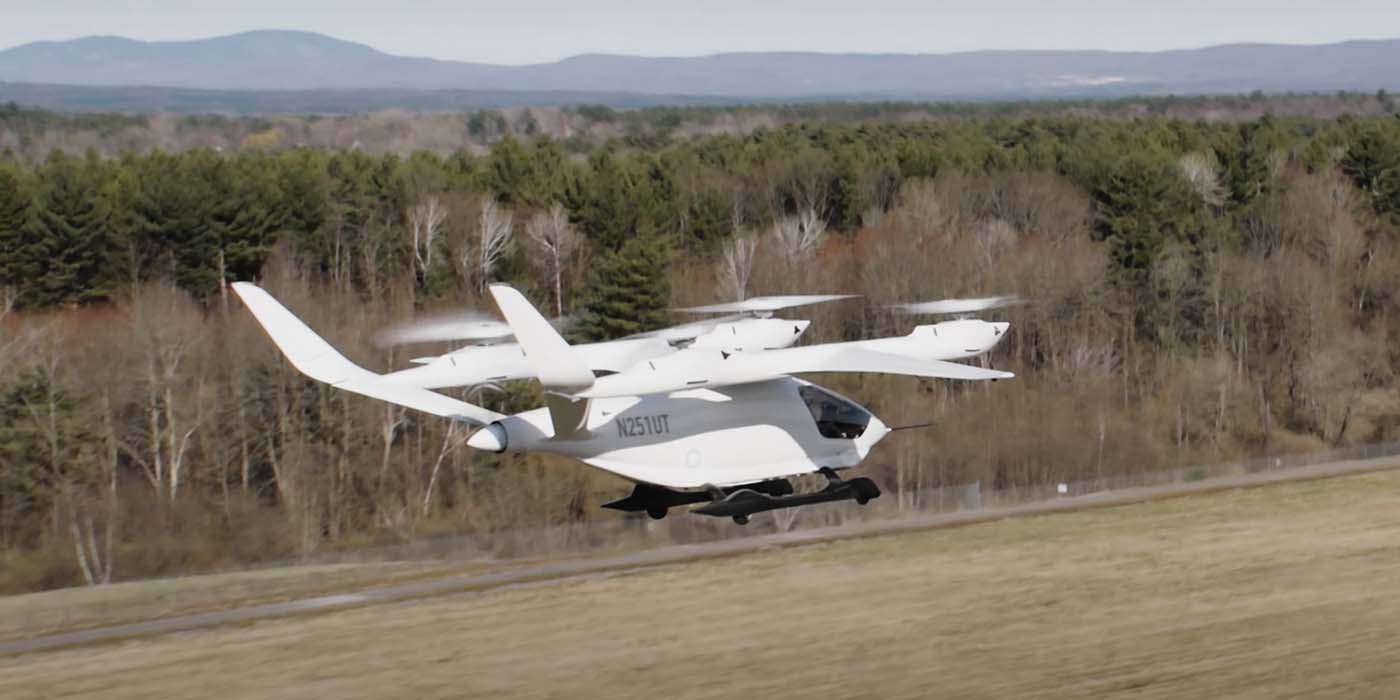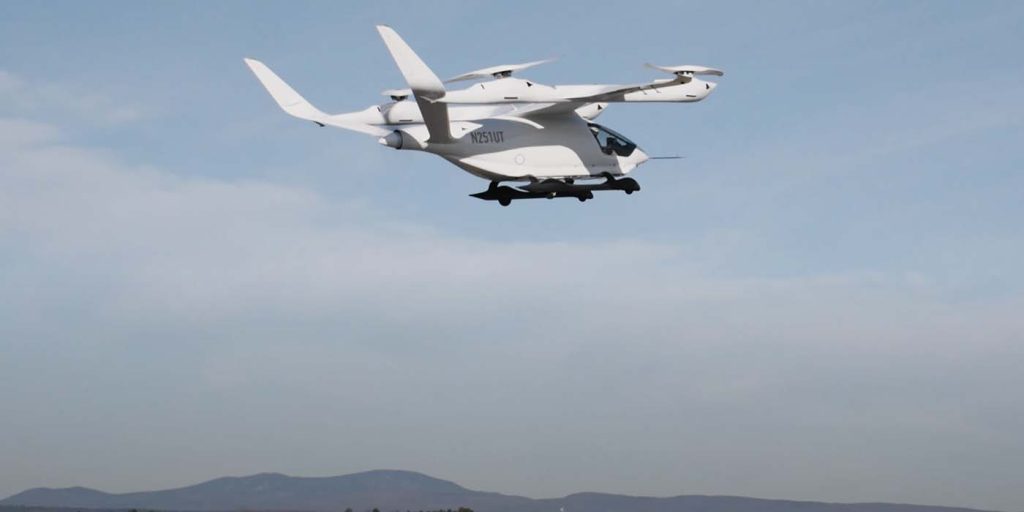
Electric aircraft developer BETA Technologies has shared video footage of its ALIA eVTOL transitioning from vertical takeoff to forward propulsion and back in its latest test video. This is a key milestone as the company seeks certification for the aircraft ahead of several use cases.
BETA Technologies is a fully integrated electric aircraft and systems developer based in Vermont that we’ve been reporting on since 2021 with the debut of its first electric vertical takeoff and landing (eVTOL) aircraft – the ALIA-250, which has since been renamed the ALIA VTOL.
The ALIA VTOL has since been joined by an electric conventional takeoff and landing (eCTOL) plane called the ALIA CTOL, which has flown tens of thousands of test miles to date en route to evaluation flights for FAA certification and is targeting full approval for commercial operations by 2025.
US Air Force project AFWERX remains a partner and long-time collaborator with BETA Technologies, helping develop its eVTOL and eCTOL technology. Recent updates have included a lot progress with the ALIA eCTOL, including international flights to Canada and a successful testing deployment with the US Air Force.
Recently, however, BETA has been touting a key milestone in the development of its ALIA eVTOL, transitioning from vertical takeoff to forward flight while in the air.

Watch BETA’s ALIA eVTOL transition mid-flight
We recommend watching the five-minute flight video below, which gives you an idea of all the prep and testing that went into the eVTOL’s first transitional flight before BETA ever left the ground. While the transition may seem simple at first glance, it’s rather difficult to engineer an aircraft that can take off in one direction and then adjust its rotors to move on an entirely different axis… all while in the air.
For perspective, BETA’s latest flight transition from sitting stationary to vertical flight, to forward, wingborne, then back to vertical flight in preparation for landing. BETA stressed the importance of this eVTOL flight test milestone because it validates the ALIA’s “lift and cruise” design. As a simpler solution to the challenge of runway independence, BETA believes it can certify its eVTOL aircraft more quickly.
Better yet, BETA relayed that its eVTOL design significantly reduces maintenance and cost while increasing flight reliability and safety. All without any air pollution. Per the release:
We’ve been progressing toward this technical milestone for a while. It’s a new flight regime, and we fly all our missions with a pilot in the seat, so we approached it the best way we know how: by respecting physics. Like everything we do at BETA, we took a methodical, step-by-step approach.
Transition — and all of the incremental testing leading up to it — provides us with the data we need to validate our design decisions as we continue toward certifying A250. It also brings us one step closer to getting this technology into the market and into the hands of our customers to complete meaningful missions
Looking ahead, BETA says the ALIA aircraft will be used by the military first, then cargo carriers and commercial passenger operations. The ALIA eVTOL transition test seen below was piloted by Nate Moyer, BETA test pilot, and former experimental test pilot for the US Air Force:
FTC: We use income earning auto affiliate links. More.




Comments